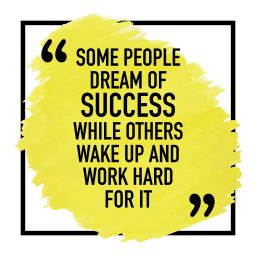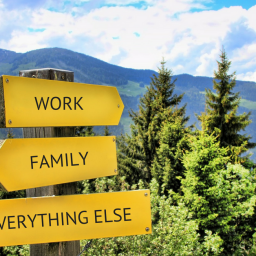
How do we make this year different? How do you make a new year’s resolution you’ll achieve this time? Why does it feel so important to try again this new year?
The 1st of January. It’s a beacon of hope, isn’t it? The hope that the coming year will be better than the last, that we’ll achieve or do things we meant to do in the previous year but didn’t.
If it’s not about hope, why else do we set new year’s resolutions? After all, the first day of January isn’t really any different to the 3rd day of March or the 17th day of November. It’s just a day, same as any other.
But hope can be a powerful driving force. So how do we make the most of that hope and set ourselves resolutions – or goals – that we will actually achieve this year?
It’s easy in the cold, dark of winter, feeling a little icky having eaten mountains of extra food over Christmas, to get to the end of the year in a “this has been a terrible year, next year had better be better” frame of mind.
You can give yourself an immediate break by thinking back over the last year and going looking specifically for the positives. I posted some questions to help you with this last week here.
Or to put it another way, if you want to know how to make a new year’s resolution you’ll achieve this time, you need to think about the end, not the beginning.
Make it your aim to achieve your goal by a certain date – or simply by the end of the year – but not necessarily to make perfect progress towards it every day, straight away, without fail, without slipping, without issue.
Resolutions are often about changing our behaviours or putting in place a plan….but not necessarily with a clear outcome or goal in mind! It’s a bit like the tail wagging the dog.
So focus on the outcome you will ultimately achieve, and not about what you think you need to do to get there. Then, as the oft-used quote goes: “If the plan doesn’t work, change the plan…but never the goal”.
Rather than take something away, add something to your life. Some of the additions may, in time, become substitutions, as you lose the need for some of the old things you’ve been carrying around or doing out of habit.
Think about where you want to get to, rather than where you want to move away from, and give yourself a positive focus for the year ahead. What could you do, actively, to step towards that? Even if you don’t have a complete plan, whenever you’re faced with a choice about what to do, you’ll be able to ask “Does this take me closer to where I want to go, or not?”
If you think about each of these areas of your life, what one thing would you like to do or achieve that would make you feel like this had been a successful year:
Your Finances
Your Work
Your Family
Your Social Life
Your Personal Happiness
Your Health
Your Home
Your Relationships and Friendships
Things will go wrong. You will have difficult times. You will hit obstacles. That initial motivation and enthusiasm you’re feeling because you’ve decided to do something positive – it won’t be as strong three months down the line on a rainy March morning when work isn’t going too well, one of your kids is sick, and progress towards achieving your goal has been slow for a while.
To be honest, it probably won’t be as strong the first morning you have to get up and go to work in the New Year and find yourself immediately slipping into the old routine.
Going back and remembering WHY you are doing this – why you committed to achieving your goal in the first place – is usually one of the best ways to get re-motivated.
When you’re thinking about how to make a new year’s resolution you’ll achieve, recognise that without a strong, genuine reason for doing something, a reason that actually matters to you (that’s YOU – not someone else) – you’ve got to question why you’re doing it in the first place. Truth is, you’re not really very likely to create the time needed or summon up the energy to get focused on something that doesn’t really matter that much.
And, if your reason for doing something involves feeling you “should” do something, it’s likely it is about pleasing someone else (whether that’s a real actual person, or some imagined person, people or community of people) or that you are worried these people will judge you poorly if you don’t do this.
Whenever you’re choosing to make a change because you feel you “should” or “must” do something….it’s unlikely to work and sustain you and motivate you when things get tough, so try and work out why you really want to do this…or be honest about it if you actually don’t really want to do it.
I have a personal example to share here. After many (like, 20) years of serious yo-yo dieting, and some focused searching for the real reason why I wanted to lose weight, I have finally concluded that I simply don’t want to do it enough to make the sacrifices it entails.
So I’m going into the new year with a new belief instead: “I am my mind, not my body.”
People do not judge me for being overweight. Being overweight does not make me a bad person. It doesn’t make me a bad coach or a bad mum (the two things I really care about). It does limit some things in my life or make them more physically difficult and it does mean I’ve a higher risk of dying younger….but I’ve decided to accept those things. Because they don’t matter as much to me as I thought they did, and I won’t guilt-trip myself into thinking otherwise.
When it comes to achieving stuff – whether it’s weight loss, health or fitness improvement, business growth, improved time management, saying no more often or saving money – developing new habits is often an important part of getting the change and success you want.
But remember that habits take time to develop (and to break!). And that things are sent to try us, even when we’ve developed great habits. Focus on progress, not on perfection – it’s not a question of “this or that”, “success or failure”, “doing it or not doing it”.
For example if your goal means becoming caffeine free this year, when you’re a regular coffee or cola drinker, you’ve got a challenging habit to change. Start on January 1st by all means, but don’t give up having “already failed” if you have a coffee or a coke on January 5th. Celebrate the fact you went four days without, and start again on the 6th. How many days can you go this time? You’re already closer to your goal than you were last week – this isn’t “either or”, you’re not back at square one!
I offer face to face career coaching and life coaching in Leicestershire, Derbyshire, Staffordshire and Birmingham and telephone or online coaching across the UK. If anything in this blog post resonates with you, and you’d like to find out more about how coaching works or what coaching with me might be like, please get in touch for an informal chat or to arrange a free initial consultation.



